This post and the photos within it may contain affiliate links. If you purchase something through the link, I may receive a commission at no extra charge to you.
Good nighttime sleep is crucial, not only for your overall well-being, but especially when it comes to lucid dreaming.
Sleep derivation can cause some serious damage.
In this article, we are going to observe how to improve your sleep quality in an unusual way.
Have you heard that some foods can improve drastically your sleep? Some natural ingredients can promote relaxation and healthy sleep cycles, making it easier for you to fall asleep and stay asleep.
Without further ado, let’s jump to the 5 sleep smoothie recipes that will help you to get the sleep you deserve.
We will go through:
TOP 5 SMOOTHIE RECIPES FOR BETTER SLEEP:
– Sleep Inducing Banana Smoothie
– Bedtime Pineapple Smoothie
– Better Sleep Kiwi Smoothie
– Sleep Promoting Banana & Mango Smoothie
– Oatly-Honey Sleep SmoothieFAQ:
– Does food make you sleepy?
– What foods help you sleep better?
– What foods cause insomnia?
– Do you digest food in your sleep?
– Which other foods you can include in your smoothies
– When is the perfect time to drink the smoothie?
– What else can I do to improve my sleep?Conclusion
Pin me!
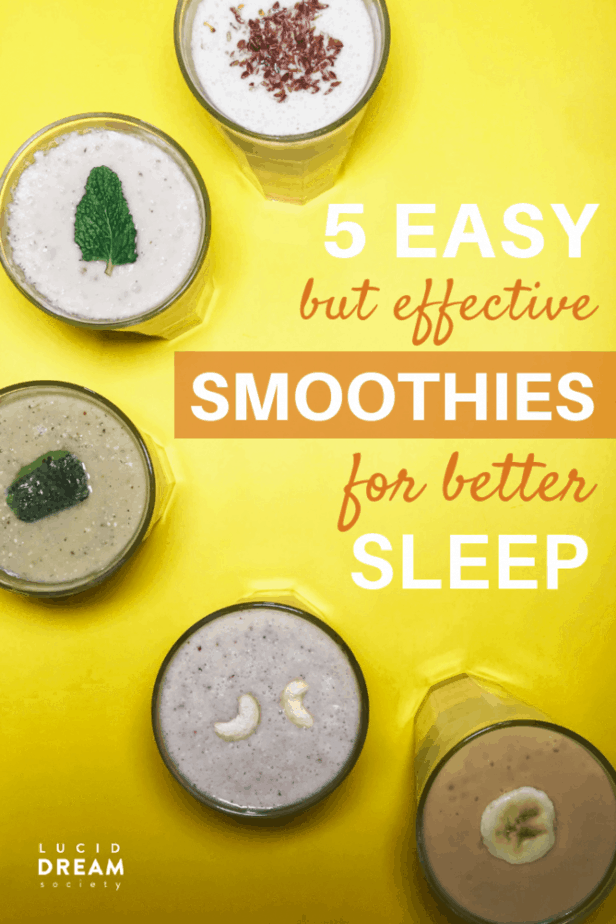
1. TOP SMOOTHIE RECIPES FOR BETTER SLEEP
We need to focus on foods that are rich in tryptophan, since:
- Tryptophan is converted to melatonin, the main regulator of our sleep patterns and natural body clock.
Additionally, some carbs, nutrients, and proteins from specific foods can support the production of melatonin, too.
The following smoothie recipes for better sleep are:
- Intended for 1 serving (1 person)
- Very simple to make
- Done in less than 5 minutes
- Require a blender
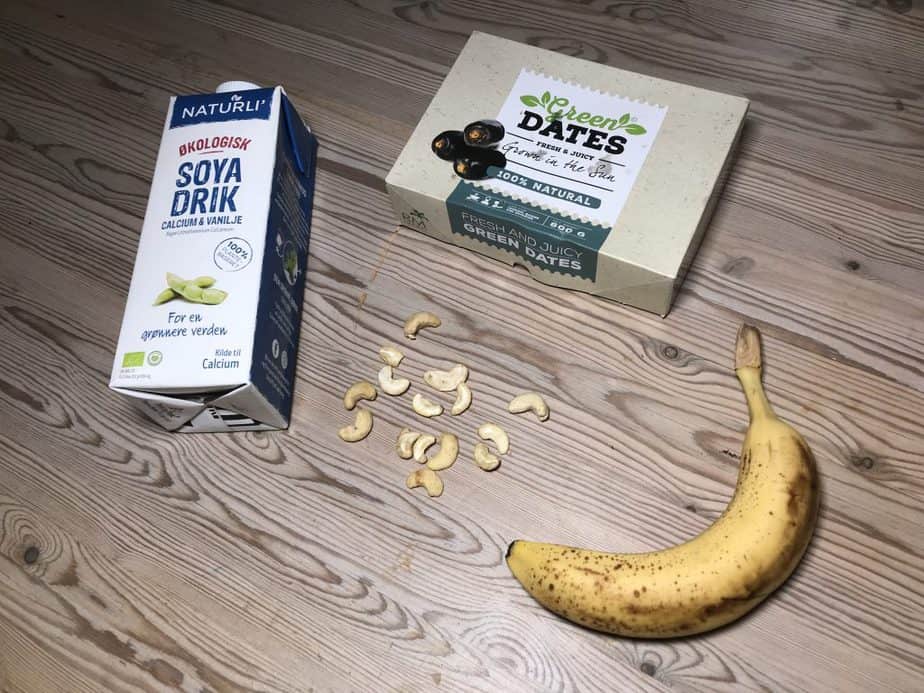
1. Sleep Inducing Banana Smoothie:
1 banana
1-2 dates
12 cashews ~ (spoon and a half)
100-200 ml soy/almond milk*
Instructions: Blend everything until smooth and enjoy!
- * You can add more or less milk, depending on the consistency you want to reach! I like my smoothies to be thicker, so I used around 100ml of soy milk.
Check out the recipe video for this sleep smoothie below:
Facts about this smoothie:
Banana: Bananas are rich in potassium, magnesium, vitamin B6 and fiber! All of these promote sleep. Magnesium not only helps with falling asleep but also supports the quality and the duration of sleep.
Dates: They are also rich in potassium, magnesium and vitamin B6 and fiber.
Cashew: Packed with Vitamin B6, magnesium, tryptophan and niacin.
B6 helps convert the tryptophan into melatonin (the sleep hormone).Soy milk: A good source of protein, calcium (when fortified), and potassium.
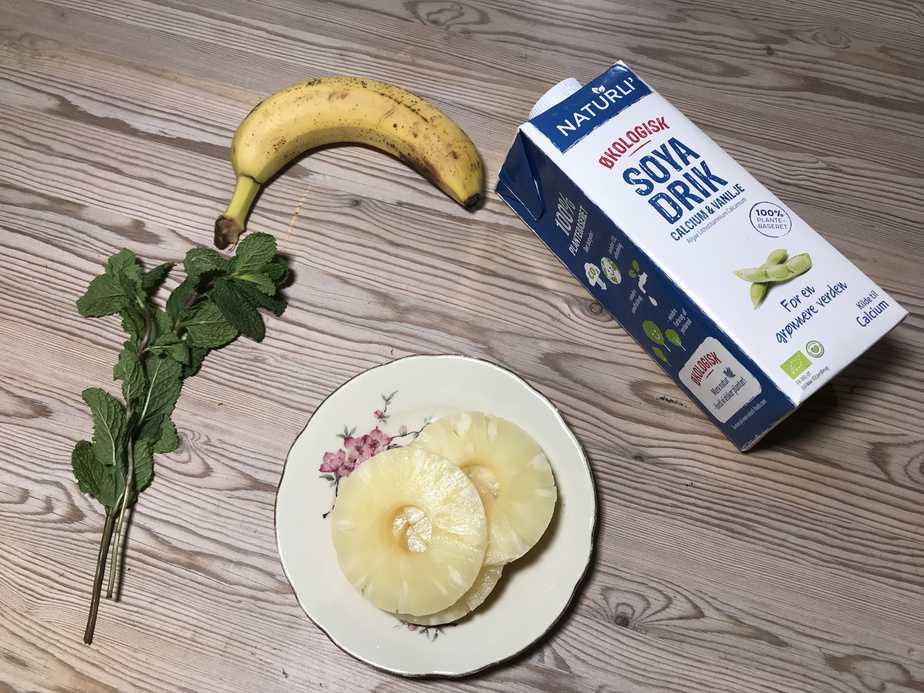
2. Bedtime Pineapple Smoothie:
150g pineapple
1 banana
100-200 ml soy/almond milk*
A few leaves of mint
Instructions: Blend everything until smooth and enjoy!
* Depending on the consistency you want to reach, you can add more or less milk! You can also use a bit of water, but not too much!
Facts about this smoothie:
Pineapple: Pineapple can increase melatonin production by 266%! (find the source in the FAQ section)
Banana: Bananas can increase melatonin production by 180%!
Soy milk: Check the previous smoothie for the details!
Mint leaves: Mint contains small amounts of potassium, magnesium, and calcium. What is more important is the menthol present in the herb, that helps with physical and muscle relaxation. Lastly, studies show that drinking mint tea before bed helps you slip into a deep sleep.
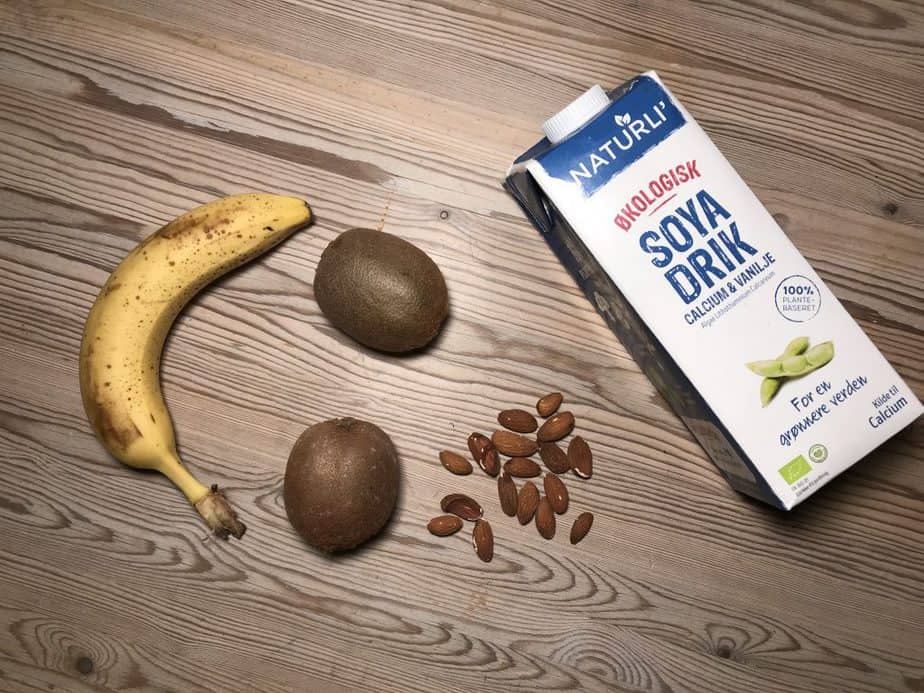
3. Better Sleep Kiwi Smoothie:
2 kiwi fruits
1 banana
100-200 ml soy/almond milk*
15 almonds/a spoon of almond butter
Instructions: Place the ingredients in a blender, puree until smooth, and enjoy!
- * Depending on the consistency you want to reach, you can add more or less milk!
- Optional: Here, some kale fits perfectly, but unfortunately I didn’t have any. Also, you can add yogurt instead of the milk!
Facts about this smoothie:
Almonds: Almonds can boost the sleep quality since they are are a source of the sleep-regulating hormone melatonin. They are an excellent source of magnesium, which relaxes your muscle and helps to improve sleep quality, especially for those who have insomnia.
Kiwi: According to this study, eating kiwi promotes sleep, because the fruit is high in antioxidants and serotonin.
Kale (if you decide to add!): Helps for falling asleep easier, and also contains all nine essential amino acids, including tryptophan.
For banana and soy milk: check the 1st smoothie for the details.
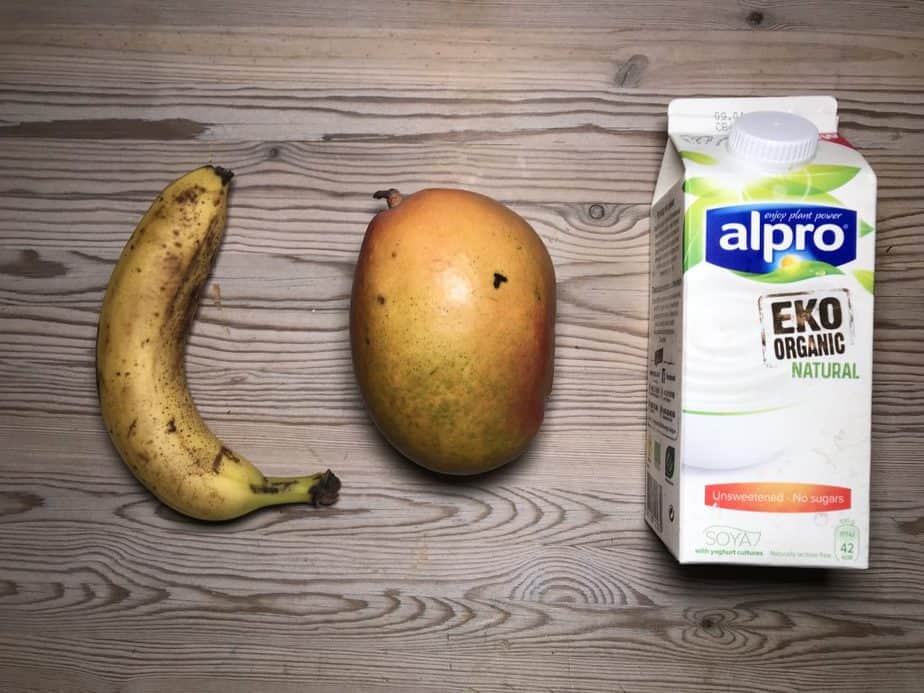
4. Sleep Promoting Banana & Mango Smoothie:
100g mango (half mango)
1 banana
100 ml soy yogurt
Instructions: Blend all the ingredients until creamy and drink straight away.
- * Depending on the consistency you want to reach, you can add more or less yogurt! You can also add a bit of water, but not too much!
- Optional: Here, cherries will fit perfectly, but unfortunately I couldn’t find anywhere to buy.
Facts about the smoothie:
Mangoes: Rich in potassium and magnesium. They also contain a significant amount of B6. Mangos are even thought to help prevent insomnia and provide for a better nights sleep. In some countries, mangos are eaten right before bed as a natural sleep aid.
Soy yogurt: Rich in calcium and tryptophan which we all know now that helps in the production of melatonin.
Bananas: Let’s mention something new about them here! Bananas are full of carbohydrates. Experts have found that having some carbs before bedtime can actually help you fall asleep faster and stay asleep
Cherries (if you decide to add!): They trigger the natural production of melatonin in the body! Cherries can help improve sleep duration and also can increase the quality of sleep.
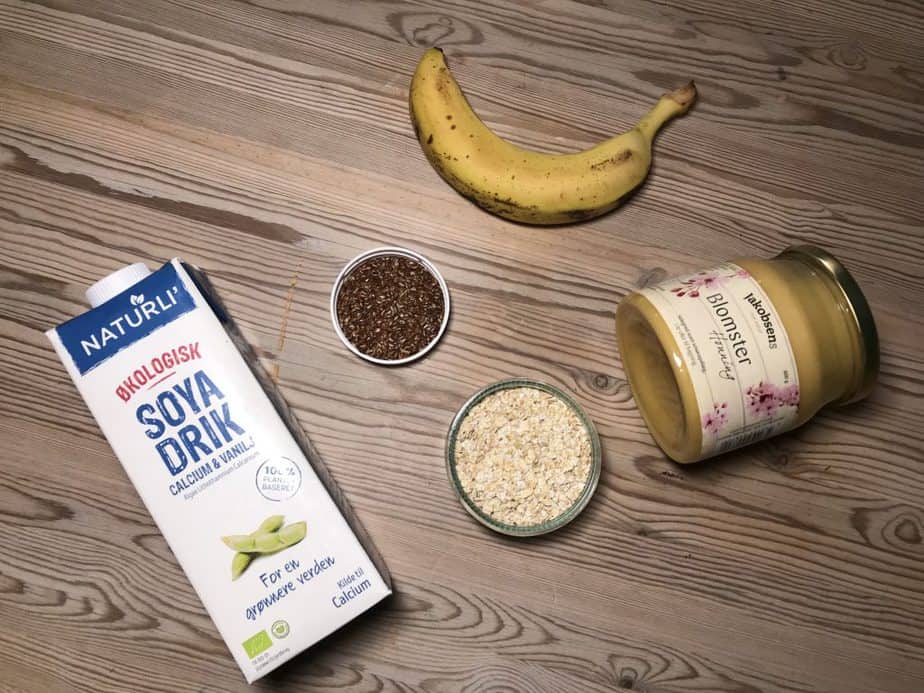
5. Oatly-Honey Sleep Smoothie:
50g oats
A spoon of flax seeds (10-15g)
1 banana
Half a spoon of honey (10g)
150-200ml soy milk
Instructions: Blend all the ingredients until creamy and drink straight away.
* Depending on the consistency you want to reach, you can add more or less soy milk/water!
Facts about the smoothie:
Oats: A great natural source of melatonin. Also, the complex carbohydrates of the oats make tryptophan more available to your brain. Oats are also packed with B vitamin, fiber, and protein! Lastly, they are a great way to relax your body and helps you fall asleep.
Flax seeds: High tryptophan levels. Flax seeds are also rich in magnesium which will help relax the muscles.
Honey: It can enhance relaxation and it is a perfect aid for a better night sleep! Additionally, Mike McInnes discovered that when taken before bedtime:
1) Honey prevents an early morning release of two stress hormones – cortisol and adrenaline.
2) Honey contributes to the release of melatonin.
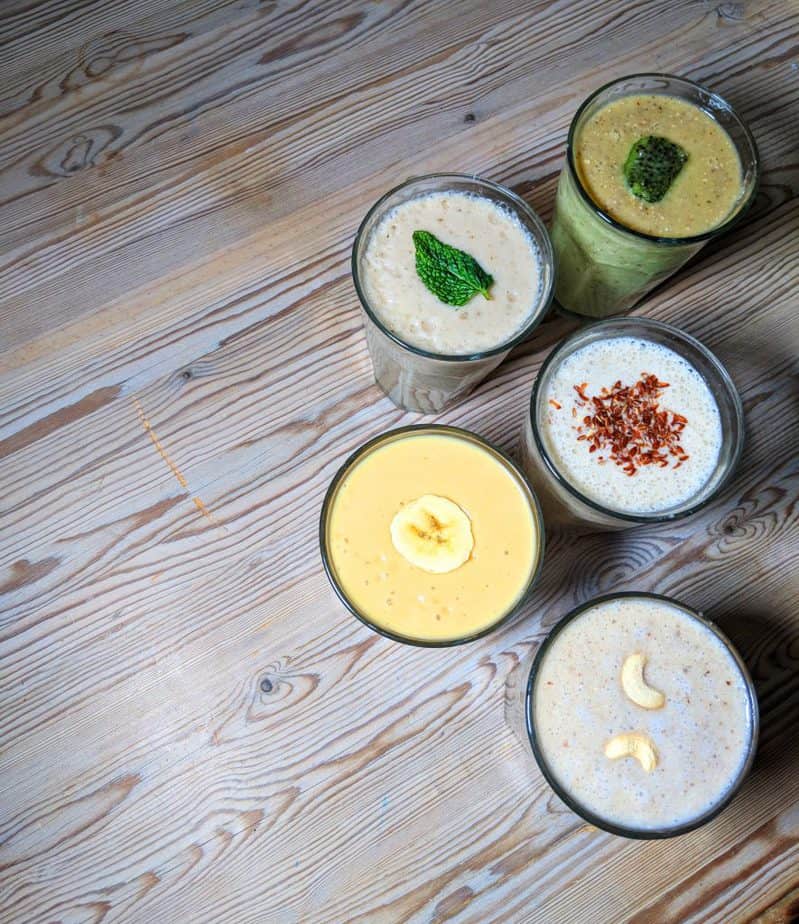
2. FAQ:
Does food make you sleepy?
Yes – specific foods can make you sleepy.
Some foods, consumed before bedtime are more likely to promote sleep, while others may do exactly the opposite.
Source: SleepFoundation.org
Have you ever caught yourself tired and looking for some sugary snack?
Or what about feeling very sleepy and wishing for a nap after a huge meal?
The things we eat and drink can either slow us down or help us to feel more active and alert.
Being aware of how different food affects us can be extremely beneficial.
Especially if you want to be more alert during the day and being able to get to sleep deeper and easier!
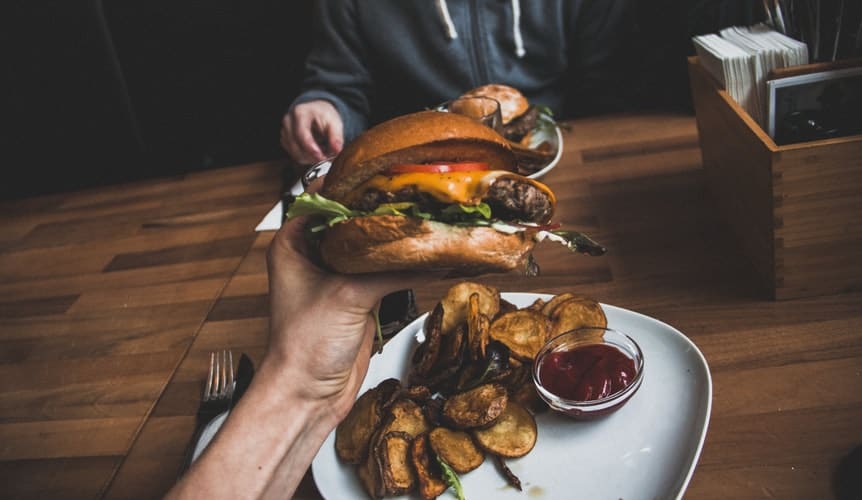
What foods help you sleep better?
So, now you already know that some foods make you feel sleepy while others give you a lift. But what makes you feel sleepy?
1) Tryptophan
Certain foods contain an amino acid called tryptophan that causes sleepiness.
Carbs make tryptophan available for the brain, whereas proteins are building blocks of it.
That’s why the best midnight snack is one that contains both carbs and proteins.
Some examples are: milk, peanut butter on toast or with some crackers
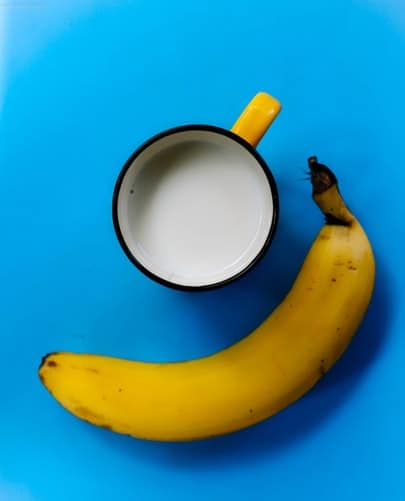
2) Melatonin
It is a natural hormone that occurs in our pineal gland, located above the middle of the brain. It is a naturally occurring hormone that regulates our sleep.
Most importantly it is made in the brain by converting tryptophan, firstly, to serotonin and then to melatonin.
Melatonin supplements are widely used as sleep aids.
There were even some studies proving that melatonin significantly improved sleep quality after only 3 weeks of nightly supplementation.
What is more, the foods that contain tryptophan, are the main triggers of the natural production of melatonin in the body!
3) Magnesium
A mineral that calms the nerves and relaxes the muscles.
Furthermore, the deficit of magnesium can lead to nervousness, and also shallow the sleep levels that can end up in frequent waking up at night.
Supplementation of magnesium appears to improve subjective and objective measures of insomnia.
Magnesium can also improve sleep efficiency, sleep time and sleep onset latency.
4) Calcium
A sedative acts as a relaxant, enhancing sleep by reducing stress and anxiety. Also, the lack of this mineral causes wakefulness and restlessness.
Calcium-rich foods are: milk, yogurt, spinach, chia seeds, and almonds.
5) Serotonin
Serotonin also takes an important part in here. It is due to the fact that it is a chemical building block for melatonin!
What is more, low serotonin levels can easily lead to problems such as depression and anxiety.
Such conditions, often lead to sleep disorders.
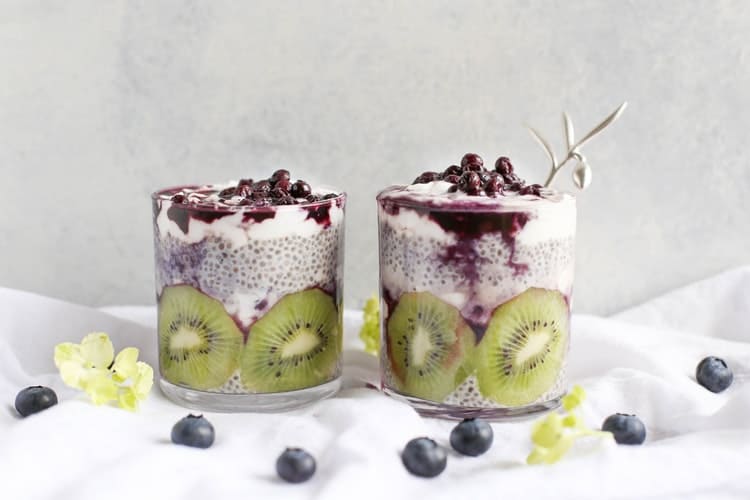
What foods can cause insomnia? Which foods are the worst to eat for the evening hours?
Did you know that in patients with insomnia, melatonin concentration is significantly lower compared to people with normal sleep?
A study showed that melatonin can shorten the time of falling asleep, as well as it reduced the sleep duration. Overall, it is able to improve sleep quality!
What is more, some foods promote sleep, whereas others may interfere with your sleep and keep you up at night.
Near bedtime it is not recommended to eat:
1) Foods and drinks that contain caffeine
Did you know that even five hours after drinking caffeine, 50% of it remains in your bloodstream? A study showed that caffeine impairs sleep.
Obviously, beverages containing caffeine can really interfere with your sleep by keeping your mind overactive. That includes:
– foods with dark chocolate
– coffee
– energy drinks
– coca-cola
– some teas
– medications may contain caffeine, too! So always check the label.
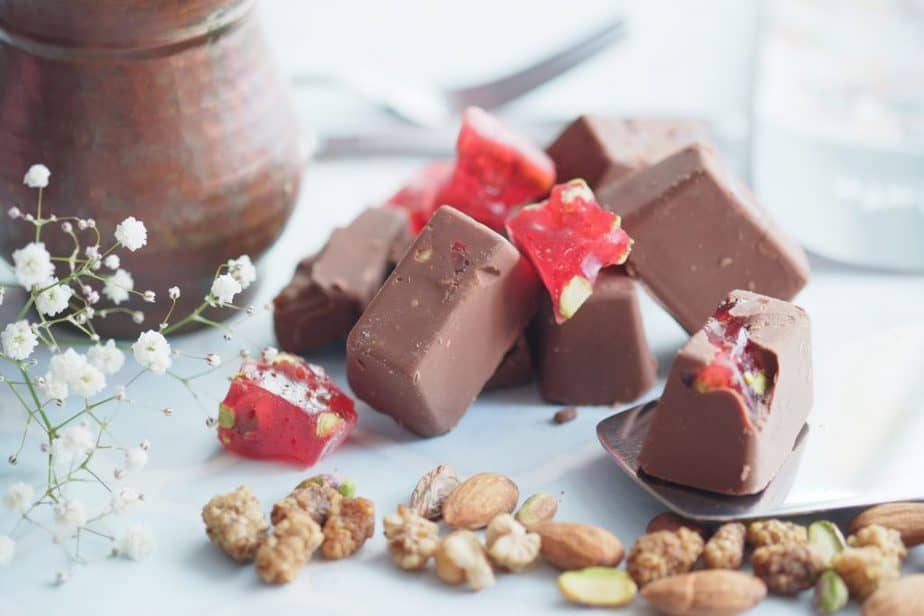
2) Aged, fermented, cured, smoked, and cultured foods (cheese, sauerkraut, red wine, etc.)
Aged and fermented foods contain histamines – a powerful neurotransmitter that can irritate our digestive, hormonal, cardiovascular, and nervous system.
Histamine can also cause anxiety and insomnia in sensitive individuals, mainly because of its ability to increase levels of adrenaline.
3) Spicy foods
Often noted with some health benefits, eating spicy foods too close to bedtime might be a very bad idea.
They are famous for causing heartburn, indigestion, and acid reflux.
Heartburn can become worse while lying down, which you will have to do when going to bed.
4) Alcohol
It can make you sleepy and more likely to fall asleep faster, however, it often disrupts sleep. It can prevent you from entering the deeper, much-needed phases of the sleep cycles.
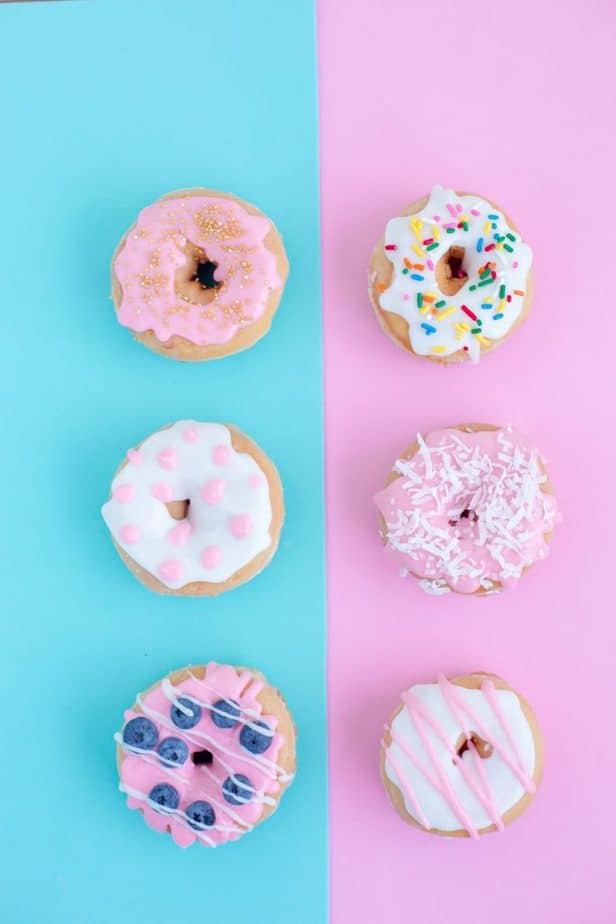
5) Refined carbohydrates
Sugar, flour, white bread, pasta, and other processed foods cause a blood sugar spike. That can affect for hours on your mood, energy, concentration, and appetite.
When the insulin surges to bring your blood sugar down, the stress hormones cortisol and adrenaline rush in to prevent your blood sugar from crashing.
So refined carbs won’t be a wise option if you are planning to go to bed soon.
6) Foods high in fat
They have been linked to poor, fragmented sleep.
Fat causes a build-up of stomach acids, which while lying down can creep into the throat causing discomfort.
A high-fat diet also opposes with the production of orexin, one of the neurotransmitters that help regulate your sleep/wake cycle along with melatonin.
7) Hard to digest foods
They can also disrupt sleep if you have them too close to bedtime.
Hard to digest meals are tougher for the digestive system to break down.
For example, eating meat near bedtime causes the body to spend more time working on digestion rather than focusing on sleeping.
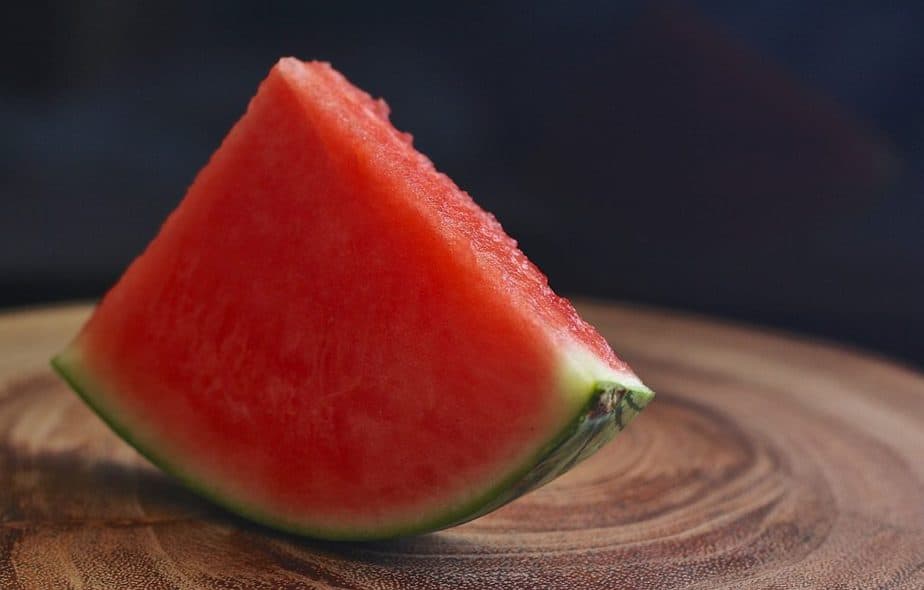
8) Watery foods
Foods containing water are natural diuretics which help push water through your system. Eating these types of foods and drinking anything too close to bedtime can cause night bathroom trips.
This results in losing and interrupting your sleep. Such foods include: watermelon, cabbage, and celery.
9) Heavy meals before bedtime
Heavy foods can cause bloating and stomach pain that will keep you away from a good night sleep.
Be aware that eating too much, even of the recommended foods before bed can cause you to lose sleep.
This will be due to the fact that your body is focused on digestion.
If you find yourself hungry before bed, the best option is always a light snack, such as the bedtime smoothies!
Do we digest food in your sleep?
Yes, we do.
However, during sleep, the gastrointestinal system function is notably reduced, most of the time.
Also, vegetables, fruits, and whole grains are rich sources of fiber. Fiber helps food move through your digestive system more easily.
And guess what?
All the bedtime smoothies for sleep are packed with fibers! So that makes them a perfect option.
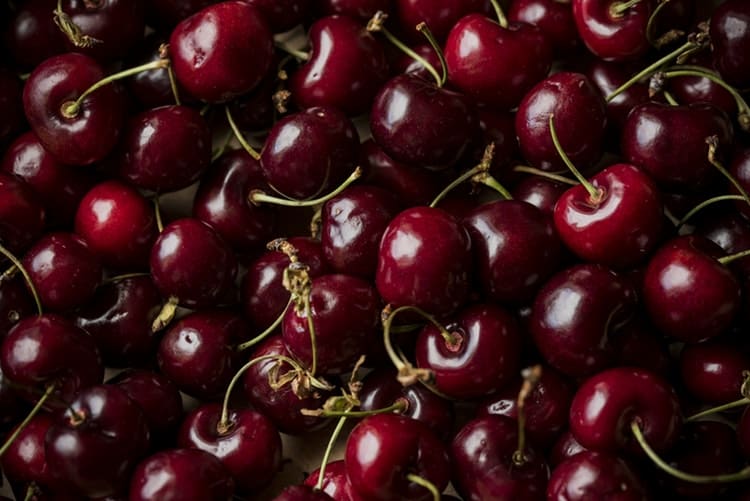
Which other foods are good sleep enhancers? (foods that you can include in your smoothies, too)
You can make your own smoothie variations, by choosing some of these ingredients!
Also, this part is just a guide with some alternative options.
For instance, if in the smoothie recipe below is written that you need cherries, and you don’t have, you can come here and see which one of the other sleep-promoting ingredients you have.
Then, you can simply substitute the missing ingredient, in this example, cherries, with some bananas.
Sleep-promoting foods:
1) Cherries
One of the few natural foods that contain melatonin – the chemical that controls our sleep.
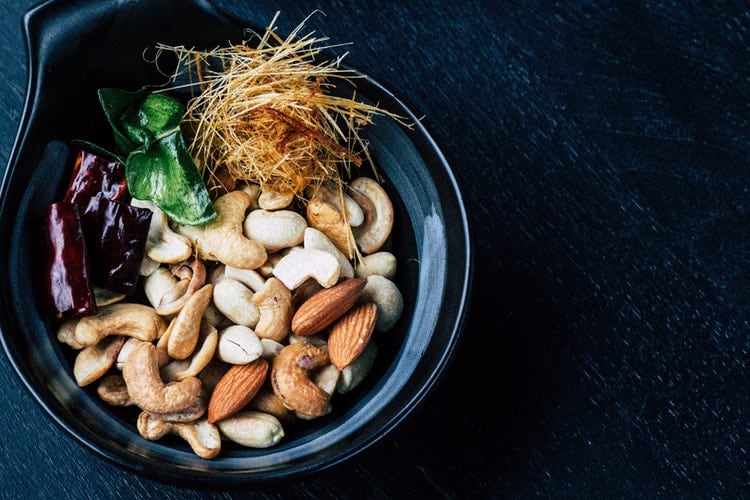
2) Nuts
Nuts are an ideal source of healthy fats. Furthermore, some of them contain melatonin, too.
Eating them can increase your blood levels of the hormone, helping you sleep more peacefully. Some of them are:
– Almonds, walnuts, peanuts, sunflower seeds, mustard seeds, flaxseed
3) Bananas
They help promote sleep because they contain the natural muscle-relaxants – magnesium and potassium.
They’re also carbs which will help make you sleepy as well. What is more, they are a good source of Vitamin B6, which is needed to make melatonin!
4) Pineapple
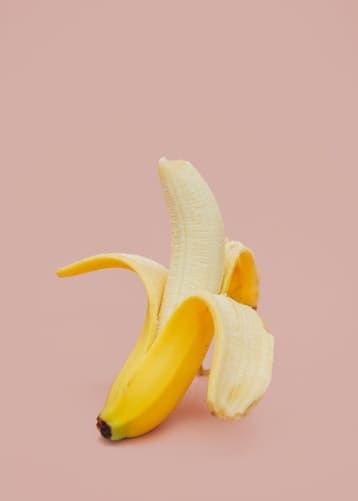
5) Cereal (without additives or added sugars!)
According to the National Sleep Foundation, a bowl of your favorite flakes before bed could help you get better sleep.
The one that contains good, complex carbs are good for sleep.
What is even better is that they go perfectly with milk, which is another sleep enhancer!
6) Sweet potatoes
Not only that is one of my favorite foods, but most importantly, sweet potatoes are the sleeper’s dream! 😀
Providing sleep-promoting complex carbohydrates, as well as they are containing that muscle-relaxant potassium!
7) Lettuce
This leafy green can speed up your bedtime since lettuce contains lactucarium, which has sedative properties and affects the brain similarly to opium!
8) Honey
According to nutritionist Lindsey Duncan, honey slightly raises insulin and allows tryptophan to enter the brain more easily.
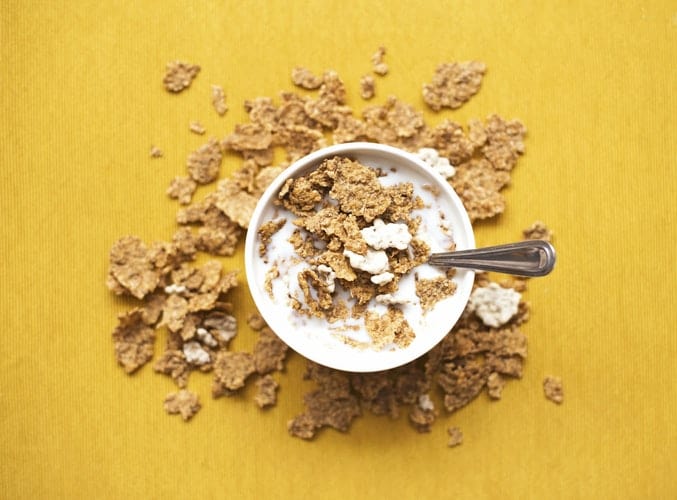
SOME ADDITIONAL TIPS:
Ingredients to avoid in your Sleep Inducing Smoothies:
- Cacao – because of the caffeine content
- Citrus fruits – the vitamin C in citrus fruits enhances energy and alertness. Also, they are more of a sour fruit.
- Spicy or acid-based ingredients – as mentioned, heartburn and other physical discomforts can cause restless sleep
Drinks for better sleep:
Not only foods but some drinks are great for sleep. They contain essential vitamins and minerals that help aid with sleep. A few you should definitely try:
- Almond milk – It contains tryptophan so a glass of milk can help you to fall asleep
- Golden turmeric milk – A soothing bedtime drink that is customizable, easy to make, and also helps promote more restful sleep
- Valerian tea – has been shown in some studies to speed the onset of sleep and to improve sleep quality
- Tart cherry juice – the mentioned study above hopefully made it clear!
- Chamomile tea – research found that drinking the tea is associated with an increase of glycine, a chemical that relaxes nerves and muscles and acts as a mild sedative.
- Passion fruit tea – Australian study found it helped people to sleep deeper. Researchers believe that chemicals found in high levels in the flower are the main reason for that
- Peppermint / Ginger tea – researches showed that they both contain flavonoids that encourage sleep
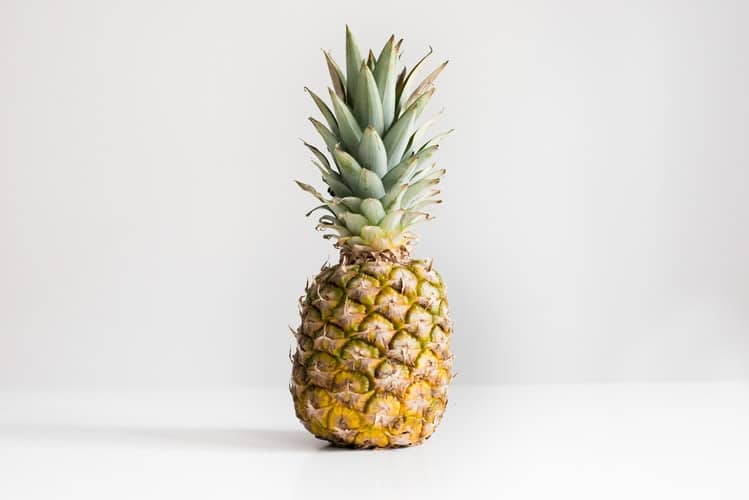
When is the perfect time to drink the sleep promoting smoothie?
Drink your bedtime smoothie an hour or 30 minutes before you want to go to bed. After all, it will need a bit of time to digest and also any later will probably startle you to wake up to visit the toilet.
This is also the ideal time to turn off your computer, put down your phone and grab a good book.
Beware! Bedtime smoothies might become your favorite evening ritual.
What else can I do to improve my sleep?
There are more things that you can include, together with your sleep promoting smoothie!
For instance:
- upgrade your sleep by finding a comfortable & high quality mattress for your needs
- sett a regular schedule to get up in the morning, even on weekends
- do not nap during the day
- avoid caffeine, alcohol, and nicotine at night
- do not watch TV before going to sleep
- do not eat before going to bed
- following the same bedtime rituals each night
- avoid rigorous exercise three hours before bedtime
- get out of bed when you can’t fall asleep
- meditate!
- practice some yoga nidra
3. Conclusion
The most powerful way to change your brain chemistry is by changing how you eat.
What you discover may be the key to your peace of mind and a good night’s sleep.
Do you have your own bedtime smoothie recipe?


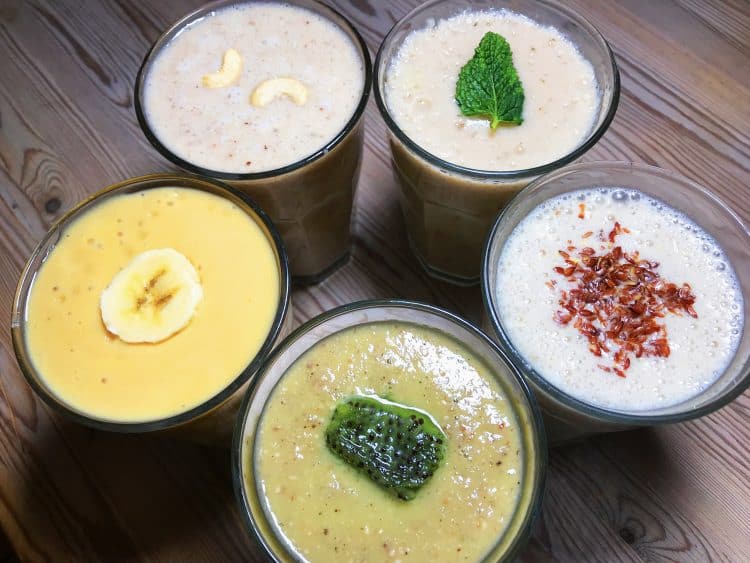







Doesn’t yoghurt fall into your avoid list?
I would definitely avoid it, but the opinions are quite divided, so that’s why I didn’t include it in the list. Personally, I wouldn’t recommend eating yogurt before going to bed.
I would definitely avoid it, but the opinions are quite divided, so that’s why I didn’t include it in the list. Personally, I wouldn’t recommend eating yogurt before going to bed.
I was having issues with sleep & ringing in the ears. My doctor did a magnesium level and found that I, like the majority of adults, am low on magnesium. I take a supplement, but still have issues. When I looked up what foods to eat to raise my magnesium, beans were on the list. Since I enjoy eating chili year round, beans are a good fit. The surprising ingredient was hemp seed. 3 tablespoons of hemp can give you 45% of your daily need. Since I’ve been putting hemp in this smoothie, the ringing in my ears has fizzled.
Hey Karen! Interesting, thanks for sharing! I’ve read somewhere about beans also, but since the article was for smoothies, I decided to not include it. But I didn’t know about hemp seeds! I love them so much, and its so cool that they are helping you. 🙂